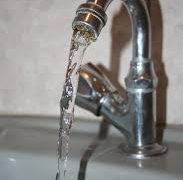Essential Plumbing Advice For All Homeowners
“When preparing your next plumbing job, you require to assess the various kinds of pipeline for the task. Although stainless-steel and brass tubing could be used, most jobs will be completed with galvanized metal, copper tubing, or some sort of plastic pipes for plumbing applications.
Lead pipelines and lead solder used on copper pipes have actually been banned since 1986, so any brand-new pipes jobs must not cause more problems with lead poisoning, although some kinds of plastic might take in chemical impurities coming from the water system. According to Chemical & Engineering News, all types of pipe products can impart taste and smells to drinking water, which typically can be alleviated by flushing the system.
Essential Plumbing Tips
Benefits of Plastic Pipe
Plastic piping can be made from PVC (polyvinyl chloride), CPVC (chlorinated polyvinyl chloride) or PEX (cross-linked polyethylene). In general, plastic pipe does not rust or wear away, is light in weight, simple to cut and simple to join– no welding required.
PVC piping is a good, low-priced choice for many plumbing projects. It is simple to install, with a series of different methods for joining, such as clamps, mechanical couplings, or solvent welding. PVC outdoor lines can be buried, though they may require additional care to prevent collapse. The primary drawback of using PVC piping is that it can’t hold up against high temperatures. This means you can’t utilize it for hot water lines and it’s not ranked for drinking water, due to possible heat destruction of the plastic.
CPVC pipeline has all the benefits of PVC pipeline, plus the added chlorine provides it a higher heat resistance. It is likewise ranked for drinking water, and is flexible, fire resistant, and well insulated to prevent energy loss for either hot or cold water.
PEX tubing resists high heat and is typically utilized for radiant warm water heating systems and drinking water lines, though it can’t be straight linked to a hot water heater and requires a short section of copper tubing in between. It is highly flexible, so it can be quickly installed through walls and around corners. PEX lasts for years and holds up against freezing temperature levels well, withstanding fractures due to freezing and thawing of water in the lines.
Benefits of Metal Pipe
Historically, the majority of piping was made from brass, copper, cast iron, or some other metal. Brass and copper have innate deterioration resistance, which makes them outstanding options, but even these have seen problems when the pipes start to age over years, typically due to lead in the solder utilized to connect them.
Among the most widely used materials in the world, steel offers impressive strength, toughness, and resilience. It is a flexible, affordable service for water/sewer plumbing and pipeline systems.
Galvanized Steel Pipe vs. Black Steel Pipe
Galvanized steel pipe features a protective zinc coating that helps prevent rust, rust, and the accumulation of mineral deposits, consequently extending the pipeline’s life-span. Galvanized steel pipe is most frequently used in pipes and other water-supply applications. In addition, galvanized pipelines are a lower cost option to steel, and can accomplish rust totally free protection for as much as 30 years while maintaining similar strength with a long lasting surface area covering.
Black steel pipeline includes a dark-colored iron-oxide coating on its whole surface and is utilized for applications that do not need galvanization protection. Black steel pipeline is used primarily for transporting water and gas in rural and urban locations and for providing high-pressure steam and air. It is frequently used in fire sprinkler systems thanks to its high heat resistance. Black steel pipeline is also popular for other water transfer applications, including drinkable water from wells, in addition to in gas lines.
304 Stainless Steel Pipe
304 stainless steel pipe also can be used for carrying liquids. Stainless deals high deterioration resistance, exceptional durability, high strength-to-weight ratio, reasonable resistance to thermal and electrical conductivity, ease of fabrication, ease of cleaning, and it is non-magnetic and harden-able by cold working.
Brass Tube/Pipe
Though brass piping is an older material, it’s still used today for supply of water and drain lines, as well as gas lines. Brass, an alloy made from copper and zinc, is highly resistant to deterioration, and as long as a lead-free brass alloy is chosen, it ought to be safe for drinking water. Due to the fact that it is a relatively soft metal, brass tube/pipe can be set up with a tight seal, preventing leaks.”
